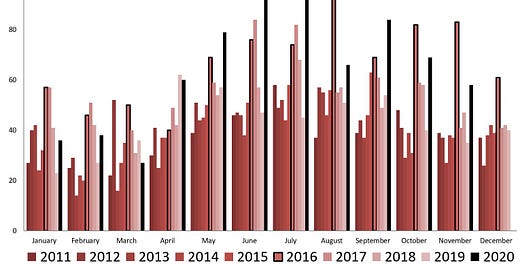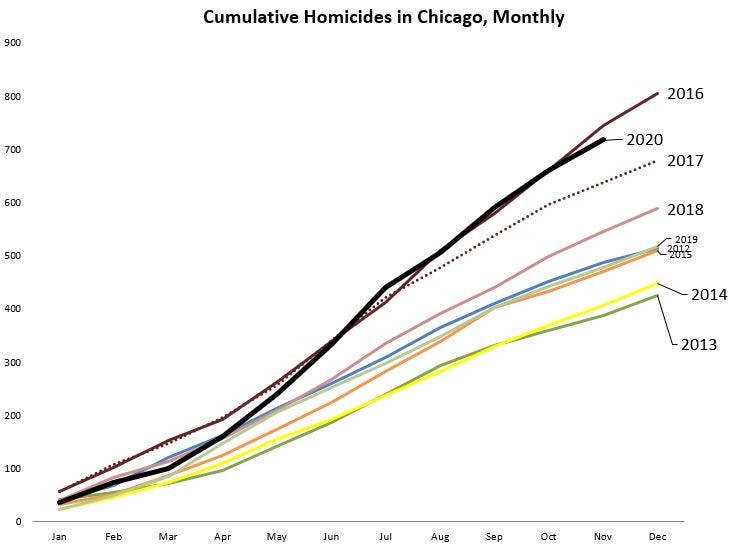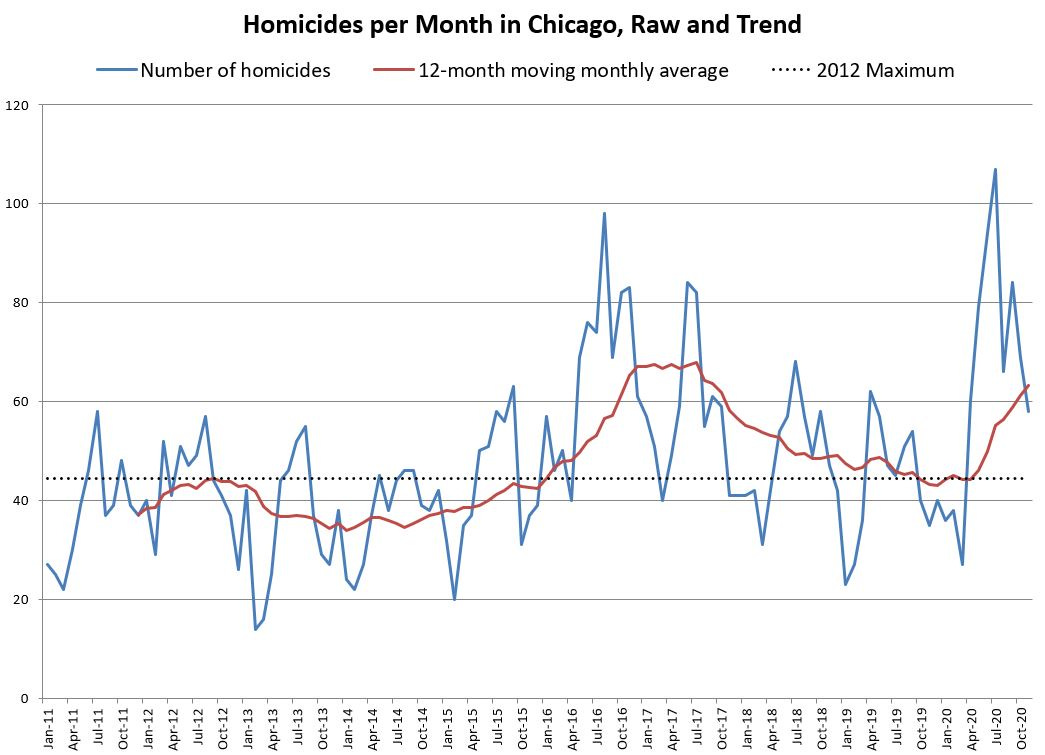Chicago Homicides Quick-Take: 2020 is as Bad as 2016, Just More Concentrated
No happy news here.
I’m trying to tease apart all the sources of extra mortality for 2020, and while digging through my old files, I found my old posts on Chicago homicides:
August 2019: Mortality with Meep: Chicago Homicides
July 2017: Mortality Monday: More Chicago Shootings and Longer-Term Trends
I was wondering how Chicago homicides were doing for 2020, given there is an excellent real-time data source in Hey Jackass!, and I had the data through full-year November.
So I updated my spreadsheet once again, and I have some quick graphs to show you.
Month-by-month comparison, 2011-2020
You can see that 2020 started out pretty sedate… and then homicides really took off in May.
2016, in particular, was marked out, because it had been the worst year for Chicago homicides in recent years. Well, let’s see how 2020 is stacking up in total homicides.
Cumulative comparison, 2011-2020
Again, 2020 started out similar to 2018/2019, which wasn’t that bad, but by June, the cumulative amount was about the same.
Trend comparison, 2011-2020
Finally, let’s look at the time series in order, instead of matching month-to-month.
There are three lines on this graph. The simplest one is the blue line, which is the raw count, month-to-month. That obviously shows the most movement, and you can see a seasonal pattern: homicides are highest in the summer.
The second line, the red one, is a 12-month moving average, which is supposed to average out the seasonality and capture the pattern of homicides getting worse or getting better. You can see the wide peak in 2016 into 2017, and that the trend rose again in 2020, as with 2016.
The third line, the dotted line, was a level from the 2012 trend peak. I arbitrarily chose that mark to compare the 12-month moving average against, to see if homicides were back at 2012 levels. You can see that the trend achieved that in January 2020. And you can see what happened after that.
In any case, yes, homicide is bad in Chicago this year, and it’s matching the 2016 experience… but much more compressed (for now).






